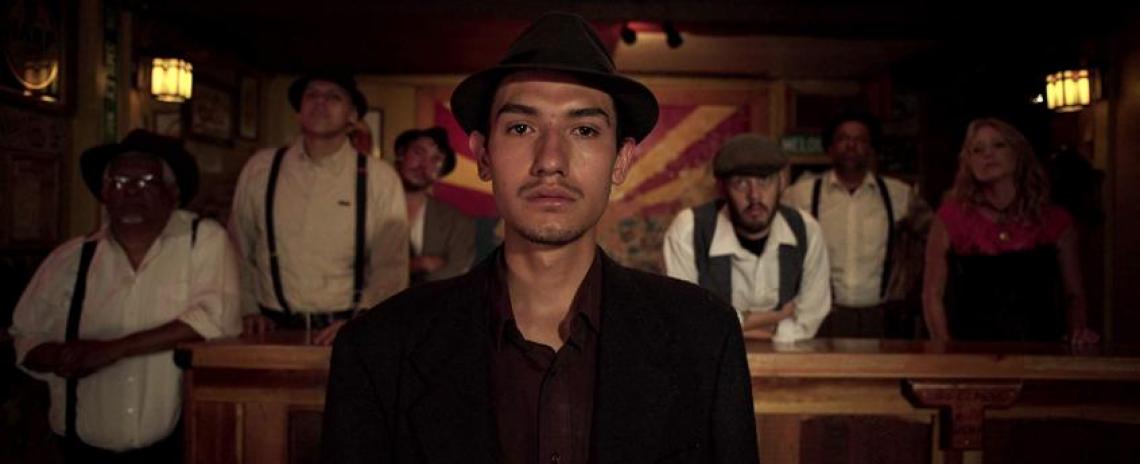Throughout the 27th Annual Whitaker St. Louis International Film Festival (SLIFF), the writers at the Lens will be spotlighting their favorite narrative and documentary films on this year's festival schedule. Each day, our critics will discuss can't-miss festival highlights, foreign gems that have already made an international splash, and smaller cinematic teasures that might have overwise been overlooked – just in time for you to snap up tickets.
Everybody dies twice. That is, if the Sarasota, Fla. historian featured in director Robert Greene’s Kate Plays Christine (2016) is to be believed. Death first occurs when someone leaves the physical world, he explains, and then again the last time someone utters the deceased’s name. Greene lets this comment hang in Kate, but it’s in his latest feature, Bisbee ‘17, that the filmmaker investigates what that might actually mean.
Not far from the Mexican border is the small town of Bisbee, Ariz. The events that unfolded in this place in the summer of 1917 are specifically what has caught Greene’s interest. That is when a major mining corporation orchestrated the illegal arrest of over 1,300 union workers on strike. The company’s enforcers harded the strikers — nearly all of them immigrant workers — into cattle cars, starved them for 16 hours, transported them across state lines, and then dumped them in New Mexico. History remembers this day as The Bisbee Deportation. This episode, which essentially comprised a kidnapping as executed by a corporation, was plainly criminal. Even President Woodrow Wilson knew this, calling the even “wholly illegal and without authority,” although none of the mining company perpetrators were ever charged for their crimes.
Greene’s Bisbee ‘17 documents the arrival of the filmmaker and his team in the Arizona town, on the heels of the Bisbee Deportation centennial. Blurring the lines between performance and lived experience, the filmmaker collaborates with historians and townfolk to perform a reenactment of the grim events. Greene’s feature functions as an ode to the collective acts of filmmaking, storytelling, and conceptual art in the vein of Christo and Jeanne-Claude’s Running Fence. Or, it would, that is, if the film weren’t unearthing decades of generational trauma, exploring Derrida’s “hauntology” and the constructed nature of history.
Divided into six chapters, Greene’s documentary film (and staged event) uses storytelling techniques from myriad genres and mediums — including musicals, Westerns, and even podcasts like Serial — to perform an exorcism of sorts. Manifestly, the film’s real interests lie in events that are unfolding 100 years after the Bisbee Deportation; namely, the political and cultural convulsions of Donald Trump’s America, although the President's name is never mentioned. (Greene was filming Bisbee ‘17 when the man was elected.) The present-day climate in America is subject to a pitiless close-up as Bisbee’s citizens, from radical leftists to the Christian right, reenact their town’s collective past. Throughout the weeks of preparations, things prove to be more difficult than anyone anticipated. To watch as a descendant of Lee Leslie Cook “arrests” and “deports” his own brother proves to be one of the more uncomfortable viewing experiences of the year.
Bisbee ‘17 has obvious parallels with the similarly haunted docu-hybrid The Act of Killing (2012), but Greene does something far more radical and fresh with the form than the comparison might suggest. The director uses his film to “write” about the present through the past. In this way, his documentary functions like one of Rainer Werner Fassbinder’s 1970s melodramas, with their critique of German Cinema. Without softening its radical edges, Bisbee '17 employs the big swells of a Hollywood genre film to present an American ghost story. Like Fassbinder, Greene understands that artifice, when approached forthrightly as a distinct mode of expression, has special access to the truth.
In Jean Luc Godard’s The Image Book (2018), which is also screening at this year’s SLIFF, the director intones: “The act of representation almost always involves an act of violence against the subject of the representation.” Bisbee ‘17 makes good on Godard’s insights, as the viewer is captive to Greene's historical and political flame-stoking. It’s a career high for the director, but also a landmark in the landscape of 21st-century documentary film. The hindsight of years is not necessary to confirm Bisbee ‘17 as one of the most challenging and astute films about America today.
Bisbee '17 screens Wednesday, Nov. 7 at 7:30 p.m. at .ZACK.


